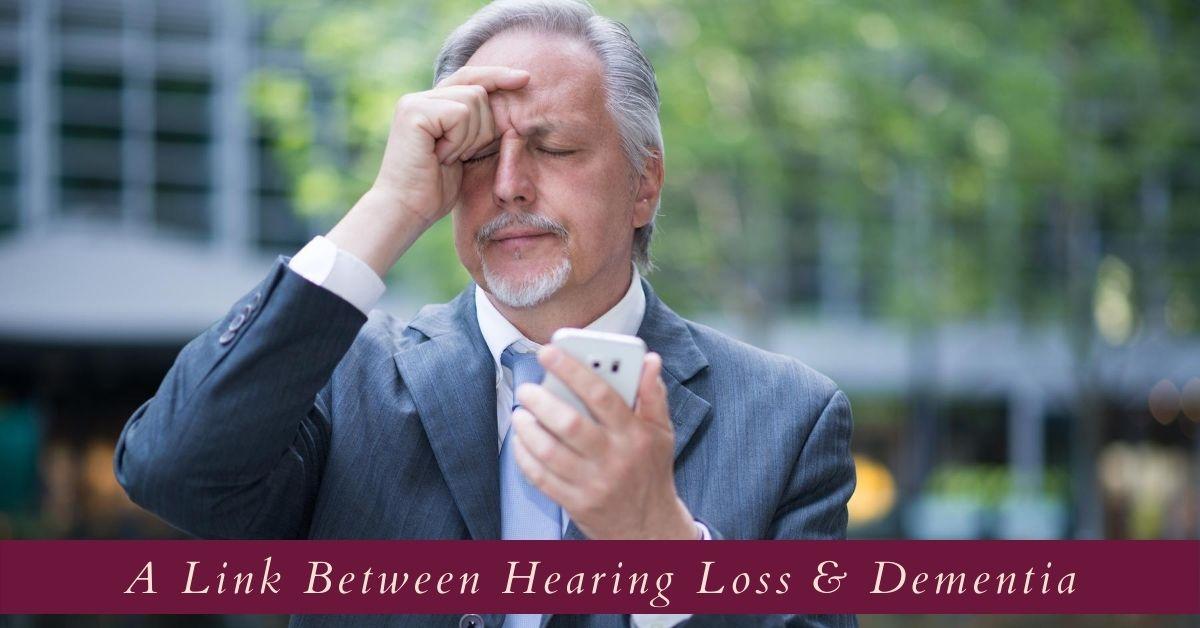
- Exploring the Genetic Landscape of Hearing Loss: Understanding the Role of Genetics - April 15, 2024
- The Hazards of Pretending to Hear - March 25, 2024
- Navigating the World of Cochlear Implants: A Comprehensive Guide - March 15, 2024
Dementia is a rapidly growing health concern that significantly impacts a person’s life. It is a condition that is mainly characterized by cognitive decline which affects memory, capacity for decision making, learning, concentrating etc. This significantly shapes one’s ability to independently navigate on a daily basis with ease.
There are various types of dementia including: Alzheimer’s disease, Lewy Body, and Parkinson’s disease which can show up in mild to severe forms. These various types of dementia impact over 50 million people worldwide and is expected to grow rapidly over the next few decades.
Because there is no cure for dementia, there is important emphasis placed on identifying risk factors. Early detection of cognitive decline provides greater opportunities for intervention and effective management of symptoms which can delay (or reduce risk) the development of dementia.
There has been ongoing research that focuses on hearing loss as a risk factor for the progression of dementia. Studies show that hearing loss, a pervasive chronic health condition, can contribute to cognitive decline.
Understanding Hearing Loss
Hearing loss is the third most common health condition that older adults experience. According to the National Institute on Deafness and Other Communication Disorders, for adults ages:
- 65-74: 25% have hearing loss
- 75 and older: 50% have hearing loss
These statistics reveal just how prevalent impaired hearing is. Hearing loss restricts the sound that a person absorbs and processes, reducing one’s ability to hear. There are various factors that cause hearing loss including existing medical conditions, environmental exposure to loud noise, and genetic history. This most commonly damages the hair cells located in the cochlea which play a critical role in translating soundwaves for the brain to process and make meaning of. Hearing loss strains communication which is foundational for healthy relationships, social life, job performance etc. Additionally, increasing research shows that hearing loss increases the risk of various health concerns including dementia.
Link between Dementia and Hearing Loss
According to the World Health Organization, the number of people living with dementia is expected to nearly triple by 2050. Currently, 80% of people who live with Alzheimer’s – the most severe form of dementia – are 75 and older. This same age group also disproportionately experiences hearing loss so numerous studies investigate the overlap of hearing loss and dementia, finding that impaired hearing is a risk factor. A few important studies include:
- 2019 Study, Brigham and Women’s Hospital and Harvard Medical School
-
- In this study, researchers looked at the data from a health study conducted over an 8-year period. There were over 10,000 participants, age 62 and older, who self-reported both their hearing and cognitive ability. The findings show two key patterns: participants with hearing loss were more likely to also experience cognitive decline and the greater the hearing loss, the more likely the participant was to develop cognitive decline. Specifically, cognitive decline was:
- 30% higher among people with mild hearing loss
- 42% higher among people with moderate hearing loss
- 54% higher among people with severe hearing loss
- In this study, researchers looked at the data from a health study conducted over an 8-year period. There were over 10,000 participants, age 62 and older, who self-reported both their hearing and cognitive ability. The findings show two key patterns: participants with hearing loss were more likely to also experience cognitive decline and the greater the hearing loss, the more likely the participant was to develop cognitive decline. Specifically, cognitive decline was:
- 2013 Study, Johns Hopkins
- Researchers collected and analyzed data on hearing loss and cognitive decline for over 1980 adults over a six-year period. Using cognitive and hearing tests, they found that hearing loss accelerated cognitive impairment:
- people with mild hearing loss were 24% more likely to experience cognitive impairment
- people with more severe hearing loss were 41% more likely to experience cognitive impairment
These studies are among many that show a strong correlation between hearing loss and cognitive decline. Researchers suggest that hearing loss affects the parts of the brain that are responsible for processing sound and that this inactiveness (of brain cells, auditory function etc.), affects cognitive functioning.
Treating Hearing Loss
A critical way to reduce your risk of cognitive decline is to attend to your hearing health! The best way to start is by scheduling an appointment for a hearing assessment. Hearing tests are a simple and noninvasive way to measure your hearing ability in both ears and determine if you are experiencing any impairment. They also establish what your hearing needs are, allowing hearing healthcare specialists to develop the most effective treatment options to meet those needs!
